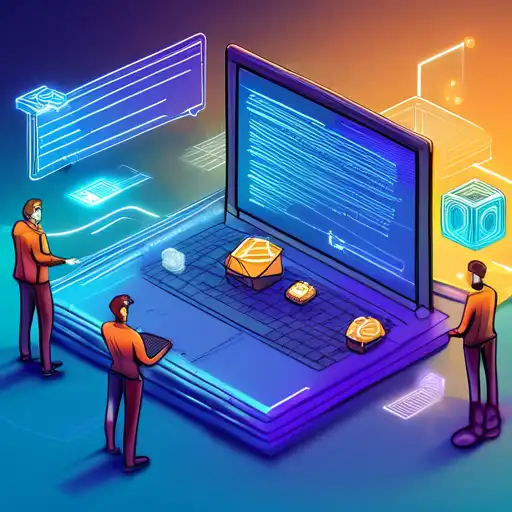Introduction to Smart Contracts
Smart contracts represent a pivotal innovation in blockchain technology, automating agreements without the need for intermediaries. These self-executing contracts with the terms of the agreement directly written into code have revolutionized how we think about trust and transactions in the digital age.
How Smart Contracts Work
At their core, smart contracts are programs stored on a blockchain that run when predetermined conditions are met. They typically are used to automate the execution of an agreement so that all participants can be immediately certain of the outcome, without any intermediary’s involvement or time loss.
The Benefits of Smart Contracts
- Autonomy: Smart contracts eliminate the need for a third party, giving you full control over your agreement.
- Trust: Your documents are encrypted on a shared ledger, making them virtually incorruptible.
- Backup: On the blockchain, every node has a copy of the data, ensuring your contracts are safe even if a few nodes go offline.
- Safety: Cryptography, the art of writing and solving codes, keeps your documents safe from hacking.
- Speed: You can save hours on business processes by automating tasks with smart contracts.
- Savings: Smart contracts save you money by cutting out the middleman.
Challenges and Considerations
Despite their advantages, smart contracts are not without challenges. The immutability of blockchain means that once a contract is deployed, it cannot be changed, making it essential to get the code right the first time. Additionally, the legal status of smart contracts varies by jurisdiction, posing potential hurdles for widespread adoption.
Real-World Applications
From financial services to supply chain management, smart contracts are finding applications across industries. They are particularly transformative in areas requiring high levels of trust and transparency, such as real estate transactions and voting systems.
Future of Smart Contracts
As blockchain technology continues to evolve, the potential for smart contracts grows. Innovations in scalability and interoperability are making smart contracts more accessible and efficient, paving the way for their integration into everyday business processes.
Understanding smart contracts is essential for anyone looking to leverage blockchain technology. By automating agreements and ensuring trust and transparency, smart contracts are setting the stage for a more efficient and secure digital future.
